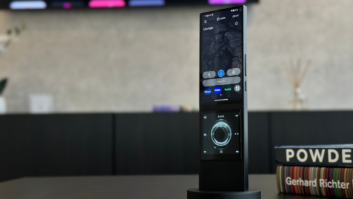Orlando, Fla. – The number of digital FM radio stations that will broadcast multiple programs simultaneously on their assigned frequency will grow to 264 in the coming weeks from a year-end 70 as major radio-station groups turn up the competitive heat on satellite and internet radio.
The HD Digital Radio Alliance, representing eight major radio groups, announced the first 28 markets in which members will begin multicasting, and one member, Clear Channel, launched simulcasting on January 19 in two markets, expanded the number of simulcasting stations over the following five days to 25 stations in five markets, and expected by the first week of February to offer simulcasts in 25 markets over 107 stations. Nine more Clear Channel HD2 stations in three other markets will go on-line on March 31.
Clear Channel is promoting the launch of its HD2 channels with on-air giveaways of the Boston Acoustics tabletop Recepter Radio HD, which retails for a suggested $499. Clear Channel is also streaming the new channels over the web.
Radio group Entercom plans to deliver two simulcast channels, HD2 and HD3, for delivering two spoken-word channels simultaneously, such as comedy and news, the alliance said.
The alliance, formed late last year, is coordinating the rollout of FM multicasting in 28 radio markets and calls the effort “the first wide-scale launch of [radio station] multicast channels in the country.” The intent is to diversify terrestrial-radio formats to compete more aggressively with the diversity of satellite and Internet radio, and the alliance promises that each multicast market will air “new and unique content.” The new channels will initially be commercial-free.
Digital radio makes it possible for an FM radio station to deliver two or more programs simultaneously on its assigned frequency.
The 28 markets announced by the alliance include the top 10 radio markets: New York, Los Angeles, Chicago, San Francisco, Dallas-Fort Worth, Philadelphia, Houston, Washington D.C., Boston, and Detroit. Other markets going on line are all in the top 100. They are Atlanta, Miami, Seattle, Baltimore, Cincinnati, San Jose, Indianapolis, Memphis, Hartford, Birmingham, Dayton, Tulsa, Albuquerque, El Paso, Wichita, Springfield, Mass,; McAllen, Texas; and Portland, Oreg.
New formats being introduced in the first wave include opera, classical alternative, traditional jazz and blues, coffee house, female talk, future country, extreme hip-hop, and in-depth news.
New rock formats are also being developed, including deep cuts classic rock, live rock, new alternative, fusion Hispanic-Anglo rock, chick rock, and indie and new rock.
For its launch, ClearChannel said its HD2 channels “will either complement existing on-air programming or bring entirely new music or spoken-word genres to listeners.” In New York City, for example, classic rock station WAXQ-FM will offer deep classics on HD2, and adult contemporary station WLTW-FM will offer light classics such as Sinatra on HD2. In Washington D.C., mainstream country station WMZQ-FM will simulcast classic country songs.
For its part, Emmis Communications announced its first wave of second channels in its New York, Los Angeles, Chicago and Indianapolis markets. Emmis will roll out second channels over 10 stations throughout the year. One New York station is already up, and two Los Angeles stations will go on-line in February.
By the end of 2005, 624 radio stations were broadcasting digital signals alongside their analog signal, and 70 offered multicast channels by the end of 2005, said HD Radio inventor iBiquity. More than 2,400 more stations are in the process of converting to HD Radio, the company added.
The sound quality of each of two simulcast channels exceeds the sound quality of satellite-radio channels, said one licensee of HD Radio and satellite radio technology. If a station’s FM bandwidth is split equally between two channels, the marketer said, each will deliver near-CD quality, exceeding satellite-radio quality.
To date, all current and announce home HD Radio tuners are multicast-capable, as are select car audio tuners. Those include Kenwood’s outboard HD Tuner box, a JVC $299-everyday CD-receiver with built-in HD Radio head due in March; and car audio adapters due from DICE and others in the second quarter, said iBiquity. HD Radios that are optional on new BMW 6 and 7 series models aren’t multicast-capable.













